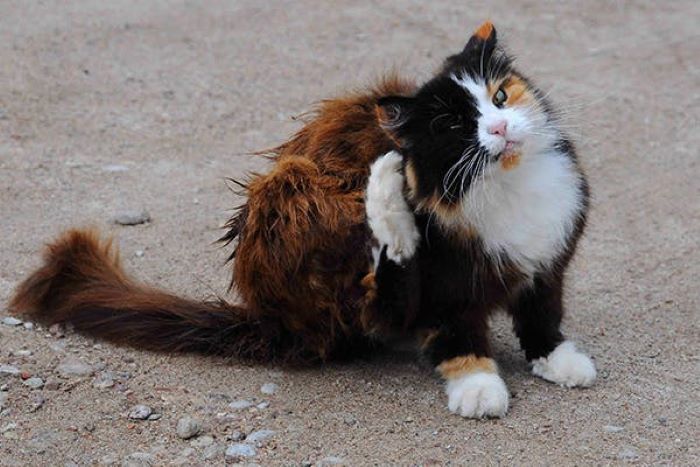The term seborrhea refers to an abnormality in the normal turnover of skin cells, which can lead to excessive secretion of sebum by the sebaceous glands in the skin. Cats afflicted with seborrhea might have dry, flaky skin (seborrhea sicca), or, if the sebaceous glands are active, greasy skin with a rancid odor to it (seborrhea oleosa).
Itching and infections can also be unpleasant components of both types. Seborrhea can be caused by a number of diseases, including allergies, fleas, and, in dogs, poor thyroid function. It can also be a primary disease entity, with no apparent underlying cause.
Diagnosis of a seborrheic condition is not difficult; what can be challenging is determining the underlying problems if they exist. Laboratory tests, including skin biopsies, might be needed to determine whether the seborrhea is primary or secondary.
By knowing which it is, the better the chances are that the treatment will be successful. Successful treatment of seborrhea depends on correcting any underlying sources (secondary seborrhea), and then focusing attention on normalizing the abnormal cell turnover occurring in the skin.
Special medicated shampoos containing chlorhexidine, tar and sulfur, and/or selenium disulfide have all been used to clear up infections and remove dead epithelial cells and excessive oils associated with seborrhea.
In cases of dry seborrhea, moisturizing skin rinses and fatty-acid supplements (available from veterinarians) can be helpful. In especially tough cases, prednisolone can be used to lessen the severity of signs and help stop the itching.
Because of its inherent nature, a complete cure will rarely be afforded in those cases of primary seborrhea. However, veterinary researchers are looking with interest at new treatments for primary seborrhea, including retinoid therapy.
Although research is still ongoing, the results so far at least look promising.



